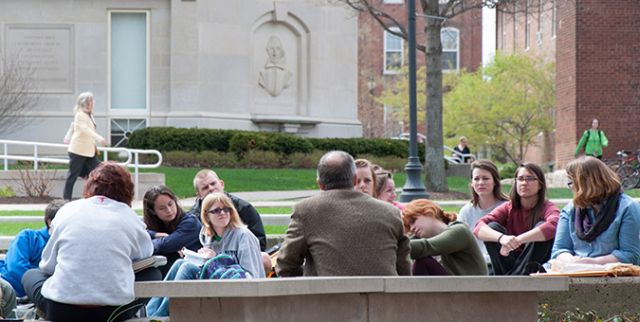
Philosophy Faculty Publications
Document Type
Article
Publication Date
9-2020
Publication Source
Dewey Studies
Abstract
The City Commission in my hometown of Dayton, Ohio recently adopted a resolution declaring racism a public health crisis. In doing so, Dayton joins municipalities around the country, as the global pandemic of coronavirus COVID-19 swirls around us. The Commission gave compelling reasons for their action, citing the disparate rates of poor health outcomes in African American communities, as well as disproportionately high rates of poverty, unemployment, economic distress, homelessness, incarceration, and inadequate education.
The Commission’s commitment to remedy these inequities is welcome. Others have laid out this evidence in much detail; I want to focus here on public health as an image for our imaginations. We think in images. Before we can find pathways toward justice, we must imagine them and imagine where they lead. Even though the virus is brand-new in humans and racism is old enough to merit the name of America’s original sin, racism and COVID-19 are twinned crises. Here I examine the tension people feel between images of liberty and of public health and point out how placing public health more centrally in our imaginations can guide us toward racial justice.
Inclusive pages
50-58
ISBN/ISSN
2572-4649
Publisher
John Dewey Society
Volume
4
Issue
1
Peer Reviewed
yes
eCommons Citation
Fischer, Marilyn, "Racial Justice and the Image of Public Health" (2020). Philosophy Faculty Publications. 189.
https://ecommons.udayton.edu/phl_fac_pub/189
Included in
Philosophy Commons, Politics and Social Change Commons, Race and Ethnicity Commons, Social Justice Commons



Comments
Article appeared in a special issue: "Creative Democracy in the Age of Pandemic and Police Violence."
Dewey Studies is a peer-reviewed, online, open-access journal of the John Dewey Society, dedicated to furthering understanding of John Dewey’s philosophical work and enlivening his unique mode of engagement with the vital philosophical questions of our time. See https://www.johndeweysociety.org/dewey-studies/
This article is provided in compliance with the publisher's policy on self-archiving. Permission documentation is on file.